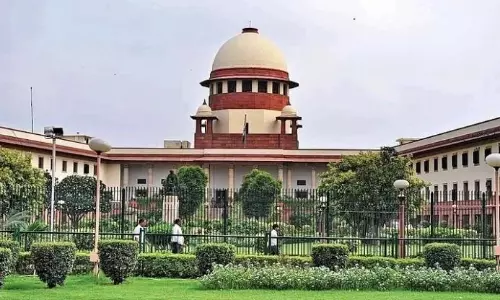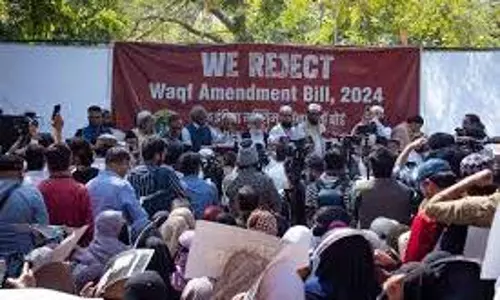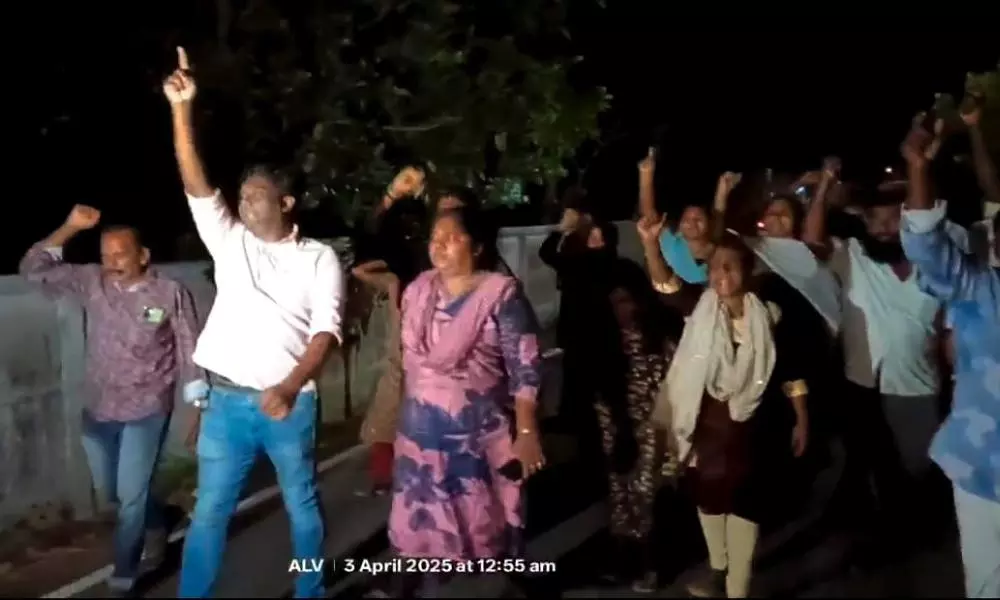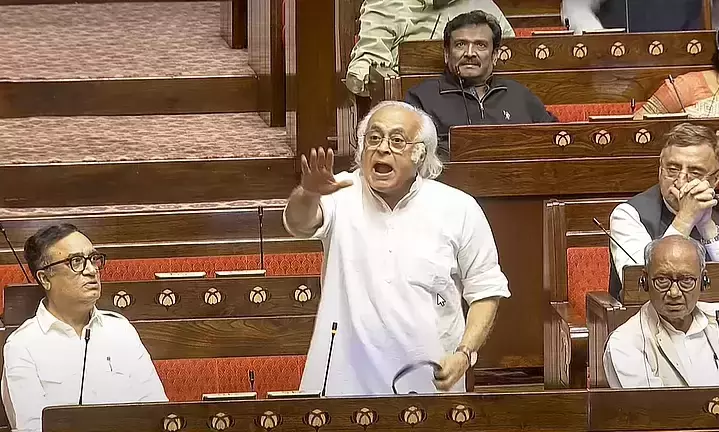
Waqf Bill one step closer to becoming law; Rajya Sabha passes bill
text_fieldsNew Delhi: With the Rajya Sabha passing the controversial Waqf (Amendment) Bill, 2025, in the small hours of Friday, the bill has secured the approval of Parliament. The Lok Sabha had passed the bill a day earlier in a similar timing of past midnight.
The bill is to be sent for President Draupadi Murmu's approval and once the President gives her assent to it, the legislation will come into force as law. It will thence be called the Waqf Amendment Act 2025.
Although the subject matter of the bill does not carry any urgency warranting such hasty push through in both the houses, the government has been zealously championing it touting it as a much-needed piece of legislation to put an end to injustices and to introduce reforms.
The Muslim community in particular, and the Opposition parties in general, have been vehemently opposing the introduction and passage of the bill, but to no avail, as the treasury bench wielded its majority to get it passed.
In the upper house the bill secured 128 votes in favour while 95 members opposed it. As in the Lok Sabha, Rajya Sabha also witnessed heated debates on the bill lasting 12 hours. The Lok Sabha voting on the Waqf Bill had seen 288 in favour and 232 against.
The government claims that the Waqf (Amendment) Bill 2025 is aimed at streamlining the management of Waqf properties, with provisions to safeguard heritage sites and promote social welfare. What in effect the bill is widely seen as doing is curtailing Muslim community role in the management of Waqf property and strengthening government control in the case of waqf assets that have been existing as waqf by use, rather than through accurate documentation as waqf property.
However, the view shared by many in political and legal circles is that since such provisions will not have retroactive effect, those properties that are already existing will not be directly affected to the extent of being attached by the government. What will happen in actual fact is a matter yet to be seen.
The Bill also claims too aim to improve the economic and social status of Muslim women, particularly widows and divorced women, but what specific provisions of the bill will achieve this end has not been sufficiently explained. And in the name of making the constitution of Central Waqf councils and state waqf boards more inclusive, the bodies will have an unprecedented percentage of non-Muslim members on them, along with inclusion of women members.
Minority Affairs Minister Kiren Rijiju in reply to the debate on the bill said that poor Muslim masses will benefit from this legislation and it will not harm any single Muslim. He claimed the Narendra Modi government works with the vision of Sabka Saath and Sabka Vikas, and it does not discriminate against any community.
Rijiu also claimed that in the Joint Parliamentary Committee, the views of members were also heard and their suggestions were incorporated in the bill. But the Opposition alleges that their views were not fully heard, nor their crucial amendments considered, let alone being incorporated.
The minister clarified that there will be 22 members in the Central Waqf Council, including the ex-officio members and in the Council, there will not be more than four non-Muslim members. He also said that out of the eleven members of the Waqf Board, only three will be Non-Muslims. He added that the Waqf Board is a statutory body and it should be secular, but still, the government restricted the number of non-Muslims in it.
While participating in the discussion, Dr. Syed Naseer Hussain of the Congress said that this bill is misleading and has been brought with the intention of communal polarisation.
Tiruchi Siva of the DMK opposed the bill alleging that a certain community is being targeted. He said the bill is anti-secular and unconstitutional. Mohammad Nadimul Haque of the TMC said the bill is against the fundamental rights of the people. Sanjay Singh of the Aam Aadmi Party termed this bill unconstitutional and urged the government to take it back. Professor Manoj Kumar Jha of the RJD questioned the intent and content of the bill.
JD(S) chief HD Devegowda congratulated the Narendra Modi government for bringing the Bill. He said Waqf properties have been misused by people who are rich or strong enough in the community.
Dr John Brittas, CPI-M member slammed the bill and highlighted it as part of BJP's attempt to cause divisions among the people. In a fiery speech, Brittas cited the instances of Hindutva assaults on minorities including 700 attacks against Christians last year alone, and burning about 200 churches in Manipur.
Sanjay Raut of the Shiv Sena (UBT) alleged that this Bill was against the nation. Samajwadi Party’s Dr Ram Gopal Yadav claimed that the country is moving towards a totalitarian state instead of a democratic state. Samajwadi Party-supported independent member Kapil Sibal pinpointed provisions in the bill which went against the claims of the government and ran counter to constitutional principles.
Leader of the Opposition Mallikarjun Kharge demanded the government to withdraw it. He said that the bill was fraught with several flaws and it went against Constitutional norms.
The Rajya Sabha also gave its accord to the Mussalman Wakf (Repeal) Bill, 2025 which repeals the Mussalman Wakf Act 1923, and with the Lok Sabha already having passed it, this bill too secured Parliament's approval.


























